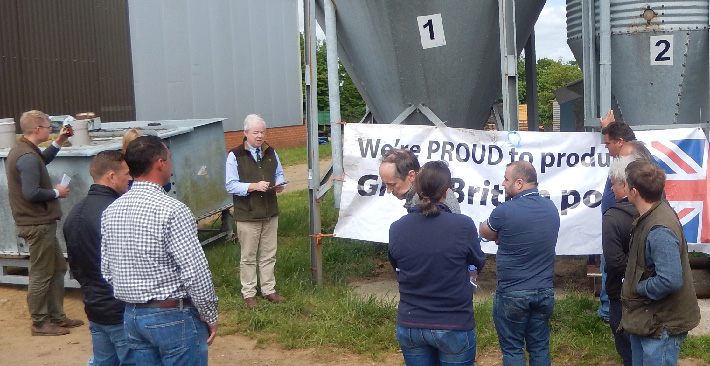Another testing week draws to a close with the SPP still in decline losing another 0.42p to 146.79p but UK prices are still well ahead of equivalent EU mainland values where the influential German producer price dropped another four euro cents, now stands (or sits) at €1.36 which is equivalent to around 119p in GBP terms.
Unfortunately, the gap is far too wide between UK and EU mainland prices putting more downward pressure on the value of our pigs as cheap imports continue to undercut the domestic market to a significant extent.
Most weekly contribution prices have however stood on and remain within the 132-137p range but are well adrift of COP levels. Very little activity in the spot market with most pigs being sold on contract with one off loads of spot bacon traded in and around the 140p mark but regular sellers are continuing to earn a significant premium over and above this.
The fall in German pig prices did not take long to filter through the cull sow market where quotes were generally down by 3p with most sows now traded in the 61-64p bracket compared with 78p this time last year.
Unfortunately the currency markets have done the UK pig meat import/export balance no favours with the euro traded at 87.62p on Friday compared with 88.2p a week ago.
Weaner prices have also taken a tumble due to a mixture of lack of confidence in finished prices in the months ahead as well as rising feed costs with the result that the latest AHDB 30kg ex farm average has slumped by a significant £5.23 to £46.64 and the 7kg average is also in retreat falling by £1.25 to £37.07 with Red Tractor weaners hit the hardest and in some cases Red Tractor 30kg pigs are trading at less than their 7kg Freedom Food counterparts.
Cereal prices have also remained generally firm with London feed wheat traded for November at £176.85/t and March next year at £180.15/t. UK protein prices have remained at generally similar levels with 48% soya traded ex Liverpool at £324/t and 35% rape meal ex Kent at £210/t.
Unfortunately there still seem to be a few more bulls rather than bears in the protein and grain markets with Chicago wheat futures rising due to potential Russian export challenges and weather concerns in North America are also creating an upward tilt to the oil seeds markets.
And finally, every cloud has a silver lining, with reports that significant numbers of pig herds in mainland Europe are now being culled due to the imbalance between costs and returns which could lead to something of a shortage of finished pigs in Europe six to nine months ahead, but that may be too long for some producers or their bank managers to wait.




